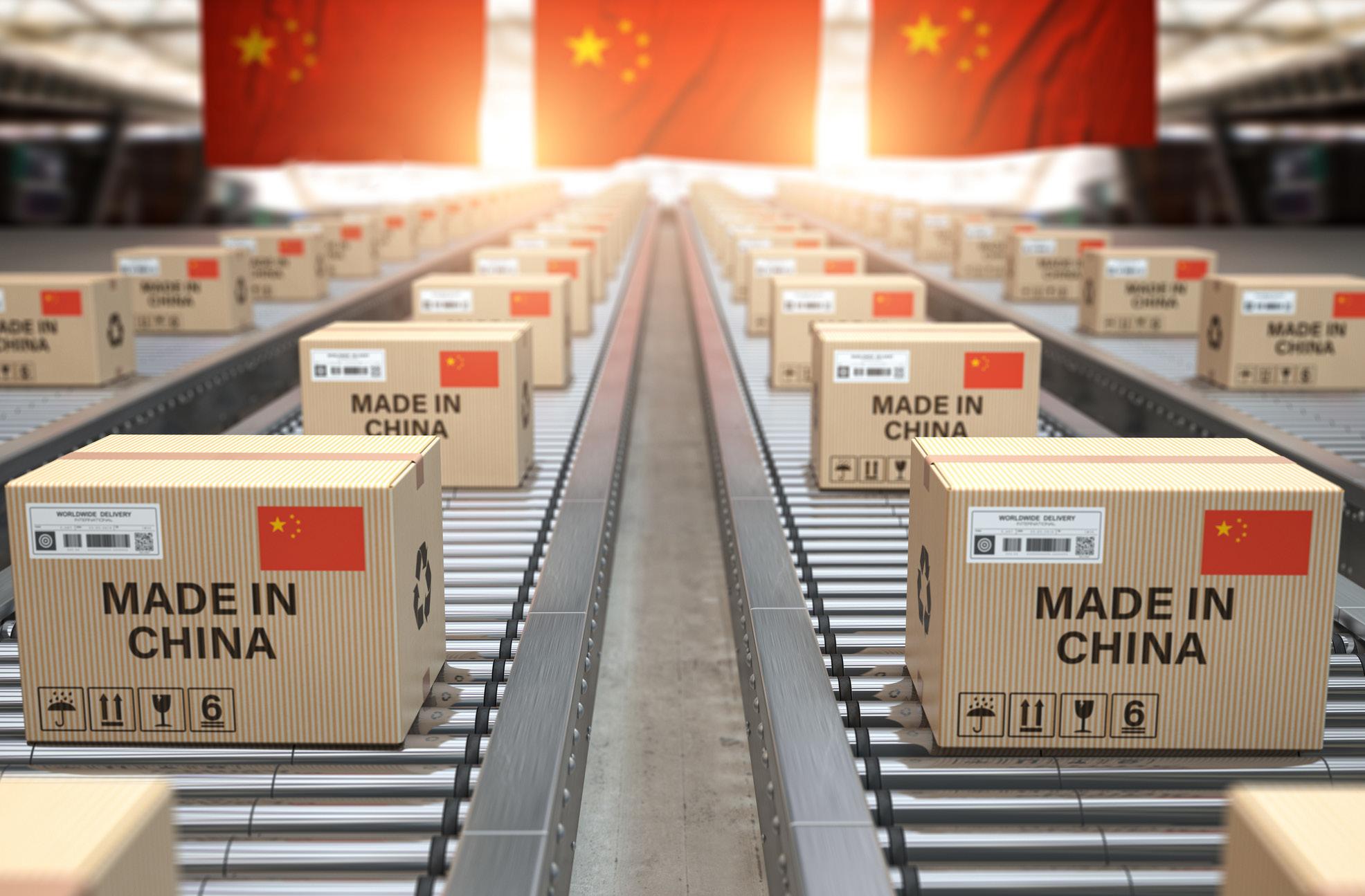
12 minute read
EXPERT EYE
The Edtech Revolution
The global pandemic put digital learning in the spotlight and the education technology boom ensued, with Asian companies leading the way. And the market is showing no signs of slowing down
Written by: Roger James Hamilton, CEO, Genius Group
The world has seen the adoption rate for new technologies accelerated considerably as a result of events such as the COVID-19 pandemic before.
For example, the SARS crisis of 2003 contributed to the boom in China’s ecommerce industry, as quarantines led consumers to shop online. Certainly, this market trend did not slow down once quarantine restrictions were lifted. Ever since, global online sales have risen exponentially. The same story is emerging in the edtech market.
Within the past 12 months, all the industry’s biggest funding deals have been in Asia. Byju, India’s largest edtech company now has a $12 billion valuation following a $500 million funding raise in September 2020.
Surpassing Byju is China’s edtech giant, Yuanfudao, the live tutoring app, which reached a staggering $15.5 billion valuation last October, nearly doubling its valuation seven months prior to that. In just two short years, the company doubled its total users to 400 million students across China.
In two years’ time, the edtech market in China is estimated to be worth $81 billion, according to research firm iResearch.
With China’s next largest online education company Zuoyebang, being valued at $10 billion, the world’s top three edtech unicorns are all headquartered in the Asia Pacific region.
Compare these figures to the
ABOUT THE EXPERT

Roger James Hamilton is a world-renowned futurist, New York Times best-selling author and co-founder of Genius School. Genius School is the world’s first global, virtual school providing a full curriculum designed to nurture entrepreneurs, artists, changemakers and global citizens.
Roger is also founder and CEO of Genius Group, the world’s number one entrepreneur education group. Genius Group is a multi-million-dollar group of companies leading the entrepreneur movement which includes the global edtech company GeniusU, education curriculum company Entrepreneurs Institute, and Entrepreneur Resorts Limited, the world’s leading group of entrepreneur resorts and coworking spaces. largest education technology firms in the United States, Udemy at $3.3 billion and Coursera at $2.5 billion, the difference is huge.
Which begs the question: why are Asia’s edtech companies up to 10 times bigger than their US counterparts? The answer is threefold. 1) The number one difference is that the largest APAC online education companies are creating their own curriculum and courses. Compared to the likes of Udemy and Coursera in the US, which act as platforms for their partners’ content, whether these are educators (as with Udemy) or education institutions (which is the case with Coursera). As a result, the firms creating their own curriculum and courses have net revenues of between 80 percent and 100 percent of their gross revenue. Compare this to net revenues sitting at just 10 percent to 30 percent of gross revenues for edtech companies in the US and the contrasts in valuations become apparent. We are looking at two distinctly different business models. 2) Couple this with the fact that the curriculum and courses the Asian unicorns are delivering are central to the needs of the students, which means they are taking a bigger slice of the education pie. They are focused on test prep and certifications. Whereas many of the US platforms work around the accreditation system – Udemy, for example, does not provide courses that give school or university credits. This is changing in the US,

with Coursera now offering degree programmes, but these are fully online and not as likely to result in getting a job after completion. So, the situation is shifting, albeit slowly. 3) Thirdly, the Asia-based edtech companies are a blend of high tech and high touch with students often guided with live mentoring from tutors, while the larger US platforms are mostly pre-recorded courses. The higher engagement where students invite other students to join for a shared learning experience creates a network effect that isn’t yet harnessed to the same level by the US edtech companies.
What does the future hold for the industry? Will a change in business model come to the US? Genius Group, based in Singapore, with a global community of over 1.4 million students is expanding in the US with the Asian edtech model: own curriculum,

relevant course, high tech and high touch with live micro-schools and a global faculty.
The edtech boom ignited by the pandemic is just the beginning of a paradigm shift in how we view education and work.
As with e-commerce in 2003, the demand for education technology in 2020 was already there. It has been there for years. Many of the jobs we are preparing children for today may even be redundant in the future.
Edtech can bridge the skills gap, not only within formal education but also for adult learners upskilling and reskilling for today’s digital world.
The edtech sector can deliver the tools to equip students of all ages with the skills necessary for creating their own opportunities, as well as exchanging knowledge and collaborating in a digital economy.
The need for a truly 21st century education system that reflects the needs of the job market is long overdue. Edtech companies are offering solutions to many of these issues that have troubled the economy for the past decade or more, and they are being rewarded with exponential profits.
Outlook Creative Services
Complementing the production of APAC Outlook, Africa Outlook, EME Outlook and North America Outlook magazines, Outlook Publishing’s awardwinning in-house team is now utilising these same specialist production skills to offer a full and bespoke range of editorial, design and marketing services via its new Outlook Creative Services division.

For more information on how we can work with you in providing a plethora of completely flexible and customisable production services, please visit:
www.outlookpublishing.com/creative-services
DESIGN: Stephen Giles +44 (0) 1603 959 656 steve.giles@outlookpublishing.com
Devon Collins +44 (0) 1603 959 661 devon.collins@outlookpublishing.com EDITORIAL: Sean Galea-Pace +44 (0) 1603 959 657 sean.galea-pace@outlookpublishing.com
Marcus Kääpä +44 (0) 1603 959 660 marcus.kaapa@outlookpublishing.com

JUSTKITCHEN

During this challenging period caused by the COVID-19 pandemic, the food and beverage industry has been turned upside-down.
Companies and businesses across the globe have slowed and even completely halted in a hibernating state to endure the unique and trying past year. Several businesses have also adapted to maximise their opportunities during this new way of working and living, such as turning to digital orders and home deliveries.
Despite COVID-19 negatively impacting countries for extended lengths of time, Taiwan has returned to a semi-normality fairly quickly.
We talk to Kent Wu, COO of JustKitchen, about the company’s all-encompassing method of business in the Asian food and beverage industry

Because of the swift adherence to the notion of a national lockdown (that was a voluntary lockdown with restrictions on travel rather than government mandated), this smooth transition to combat the virus has limited the negative effects for Taiwan compared to many other countries that have, and still are, facing challenges.
In light of this, Taiwan has already reached a level of post-pandemic normality that spells promise for sectors across the nation. While many companies have had to shift and adapt to new methods of operation, JustKitchen has been able to provide its high quality and professional services to a multitude of customers.

COMMUNITY AND ENVIRONMENT
JustKitchen maintains a key company focus on the community and the environment. One such element of business is maintaining community connections for the mutual betterment of both small-scale farmers and the company itself. For example, JustKitchen sources a percentage of its rice from individual rice farmers; the company buys their entire crop and integrates it into its supply chain to help individual farmers maintain a strong livelihood. On top of this, JustKitchen works alongside a local orphanage to provide valuable industry experience through a paid staff training programme maximising individual youth achievement, opportunities and potential. Lastly, the company’s environmental initiatives have revolutionised JustKitchen through ensuring that its packaging is almost all recyclable, with 75 percent of it being fully compostable.
Kent Wu, COO, JustKitchen
“JustKitchen is essentially an operator with its own brands. We create our own in-house brands that appeal to a wide cross section of tastes and are able to deliver very high-quality meals through our network of kitchens,” explains Kent Wu, COO of the company.
Kent had always been tied to the e-commerce space and it was through friend and family ties that his career path made its way into the food and beverage industry. After spending six months as an advisor for JustKitchen, and being incredibly impressed with the business model, Kent invested in and joined the company in a permanent capacity.
“I really saw the value both to the consumer as well as to our own brands whether they were in-house or external,” Kent tells us. “The agile nature of the business model was really compelling; the way the digital met the real world to culminate in this virtual kitchen represented the future of F&B.”
When looking at the food and beverage industry, there are clear divides when it comes to the sourcing of food, the ordering of a meal, the


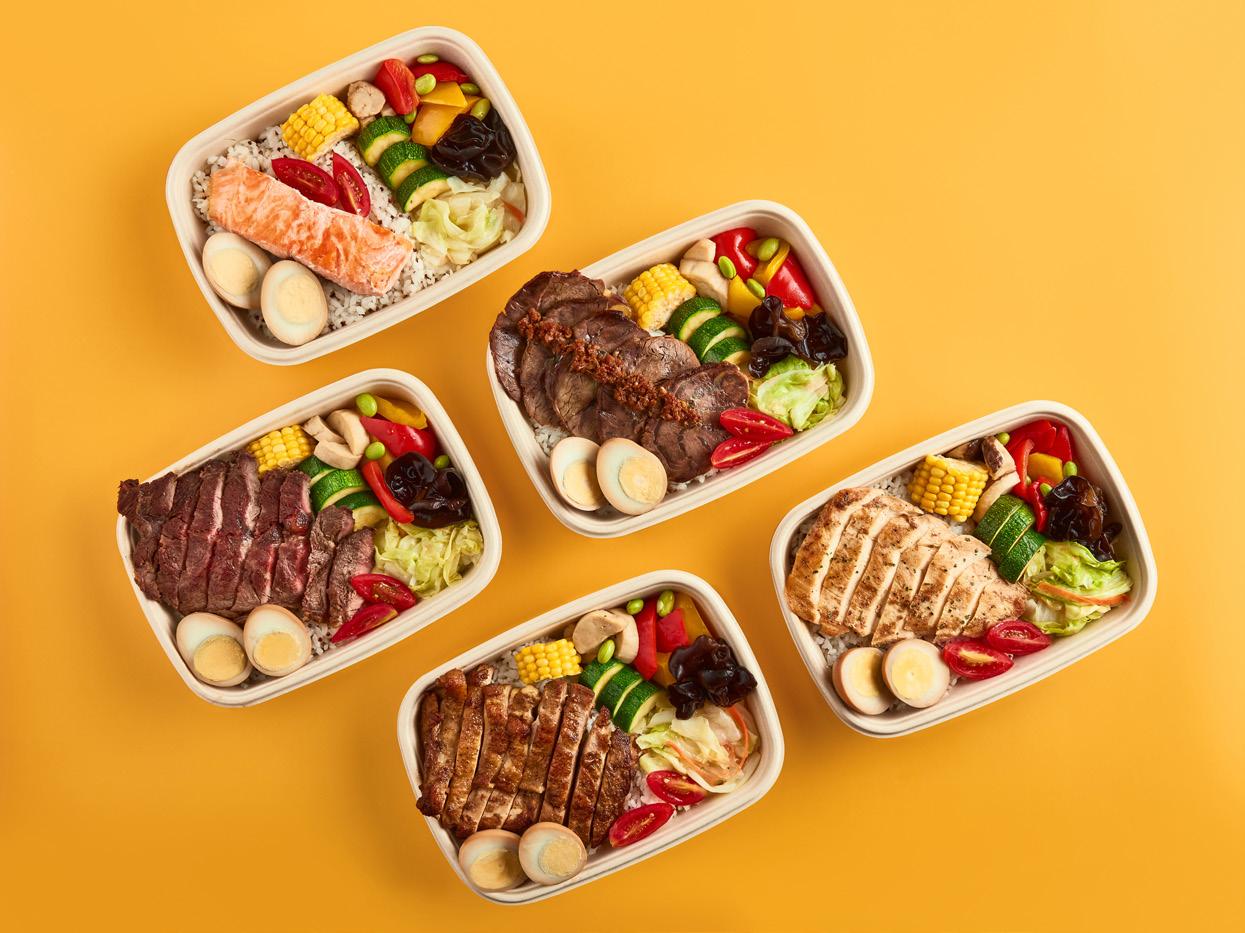
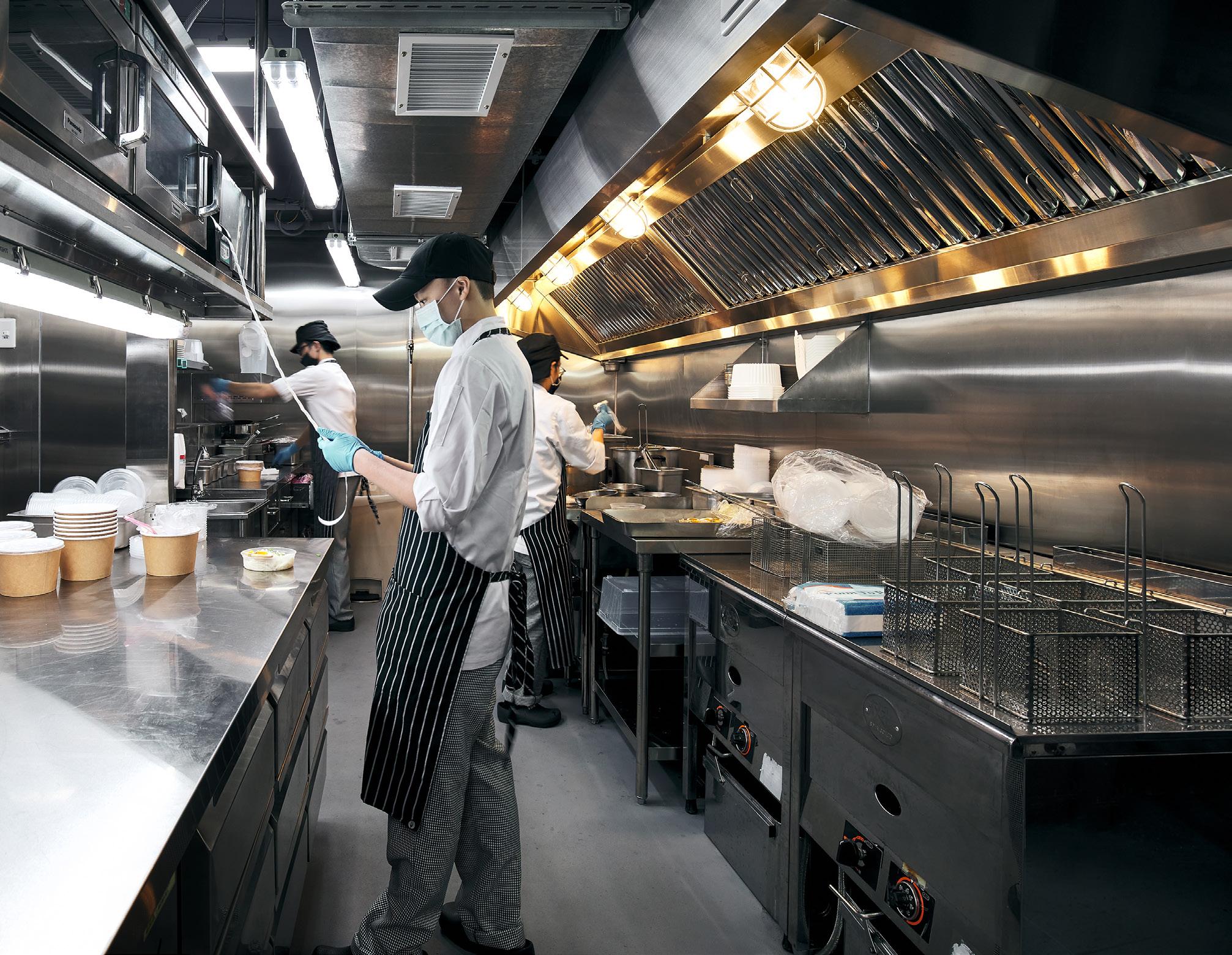
prep and the delivery of it to the door of the customer. For each step of this process, businesses each play a vital yet separate role in the entire food delivery system.
JustKitchen changes this. For the company, the process involves JustKitchen being the root source of the prepping process, with the ingredients being sent to kitchens that prep and cook meals that come under the banner of the multiple company brands they operate (Just Chicken, Bit Beef Noodle, and Bodyfit Healthy Bento to name a few). Customers will then use the JustKitchen app to order meals before the company utilises a partner delivery provider to collect and deliver from the closest kitchen to the customer’s address.
Just over a year old, and with 17 brands under the JustKitchen name (four licensed and 13 in-house), the company exists as a home delivery cuisine service wrapped in one.
JustKitchen is constantly finding ways to engage its customer base and ensure the smoothest possible transition during the process. Kitchen-OS is one such development.
“This is what we’re really focusing on in our technology side of business,” Kent elaborates. “We want to have full back-end technology stack that supports and streamlines purchasing, supply chain, inventory management, accounting, point of sale, and all of these fundamental fields that are part of running a kitchen.

THE JUSTKITCHEN PROCESS

The company’s network of highly efficient “hub and spoke” commercial kitchens allow delivery-only restaurants to reach more customers.
HUB KITCHEN
Full-scale commercial kitchen that produces semi-prepared meals which are sent to spoke kitchens.
ONLINE ORDER
Customer orders meal via the website or delivery app.

SPOKE KITCHEN
Order is completed at spoke kitchen nearest to customer.
DELIVERY
Delivery partner quickly transports meal to customer.
DELIGHT
Customer enjoys meal that arrives faster and fresher.
“To this end, we are providing a turnkey solution for both our own operators as well as our future franchisees. We can have full visibility of every one of our locations at any one point to help them with the technology. Using this, we can see each separate inventory and can replenish them individually. Through Kitchen-OS, we can also track shipments and oversee entire supply chain management operations.”
JustKitchen is building a unique and innovative brand in the food and beverage industry in Taiwan and beyond. Investing in the brand itself, through company aspects such as its tech stack and app development allows the brand to run hyper-efficiently and provide the best possible customer experience.
And when it comes to service, the supply chain plays an important part in the delivery of quality operations. As JustKitchen works with essential aspects of food and
beverage service such as perishable goods, quality checks, and the sourcing of manufactured items such as food packaging, the fluid operation of the supply chain becomes an element of business that JustKitchen needs to ensure runs smoothly. Additionally, there is a keen focus on individual employee effort which is recognised by the company.
“We currently have approximately 200 employees and they do an exceptional job,” Kent tells us proudly. “We encourage them to do their best, and we work internally to ensure career progression where possible and take a proactive approach to company training to best develop our staff.
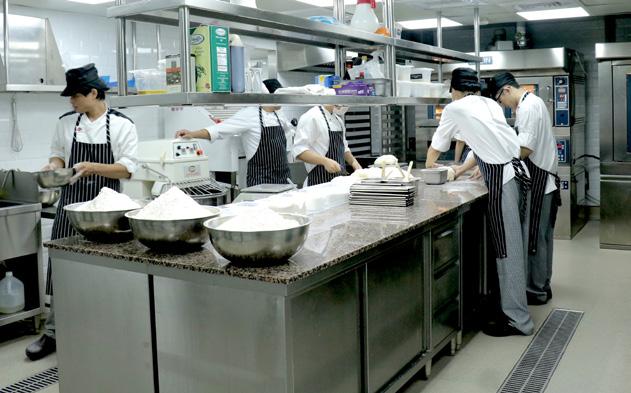


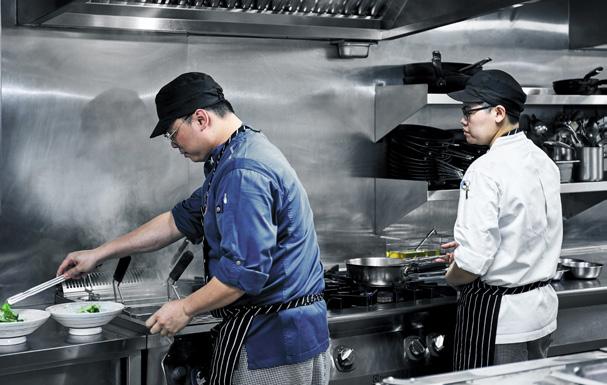
“JustKitchen empowers its employees by providing them help towards any path they wish to tread alongside the company, be that a change in business division, or specific training in another area. We help facilitate their individual growth as well as encouraging off-site training. “Our culture surrounds our people, and we take the time to celebrate occasions like birthdays and company awards and maintain a social sphere through events such as happy hours on Fridays.”
Only in its second year, JustKitchen’s innovative operations and major plans for international expansion spell promise for the rest of 2021 and the years beyond. With an April 2021 listing on the Toronto Venture Exchange confirmed, it is worth keeping an eye on this growing company and its revolutionary business operation.



